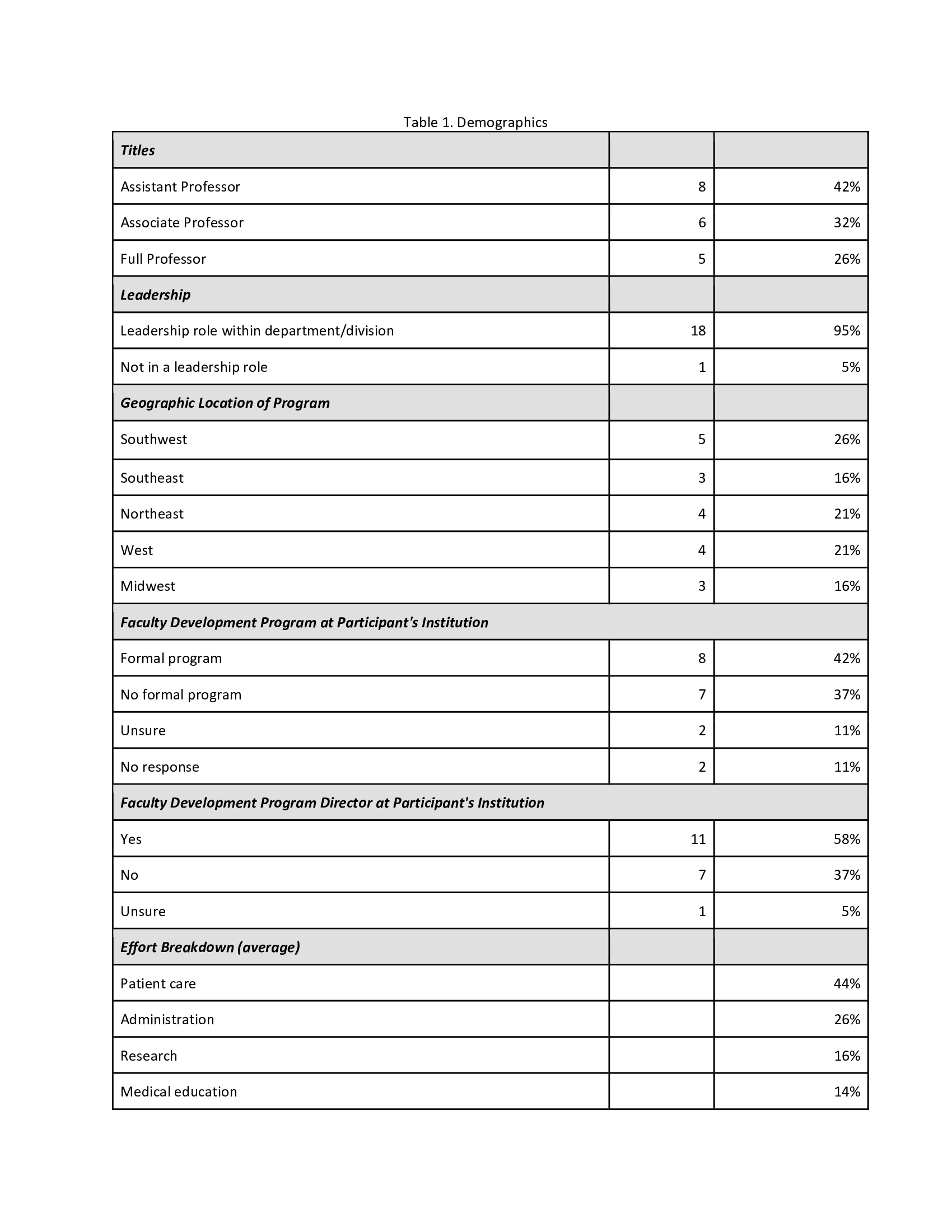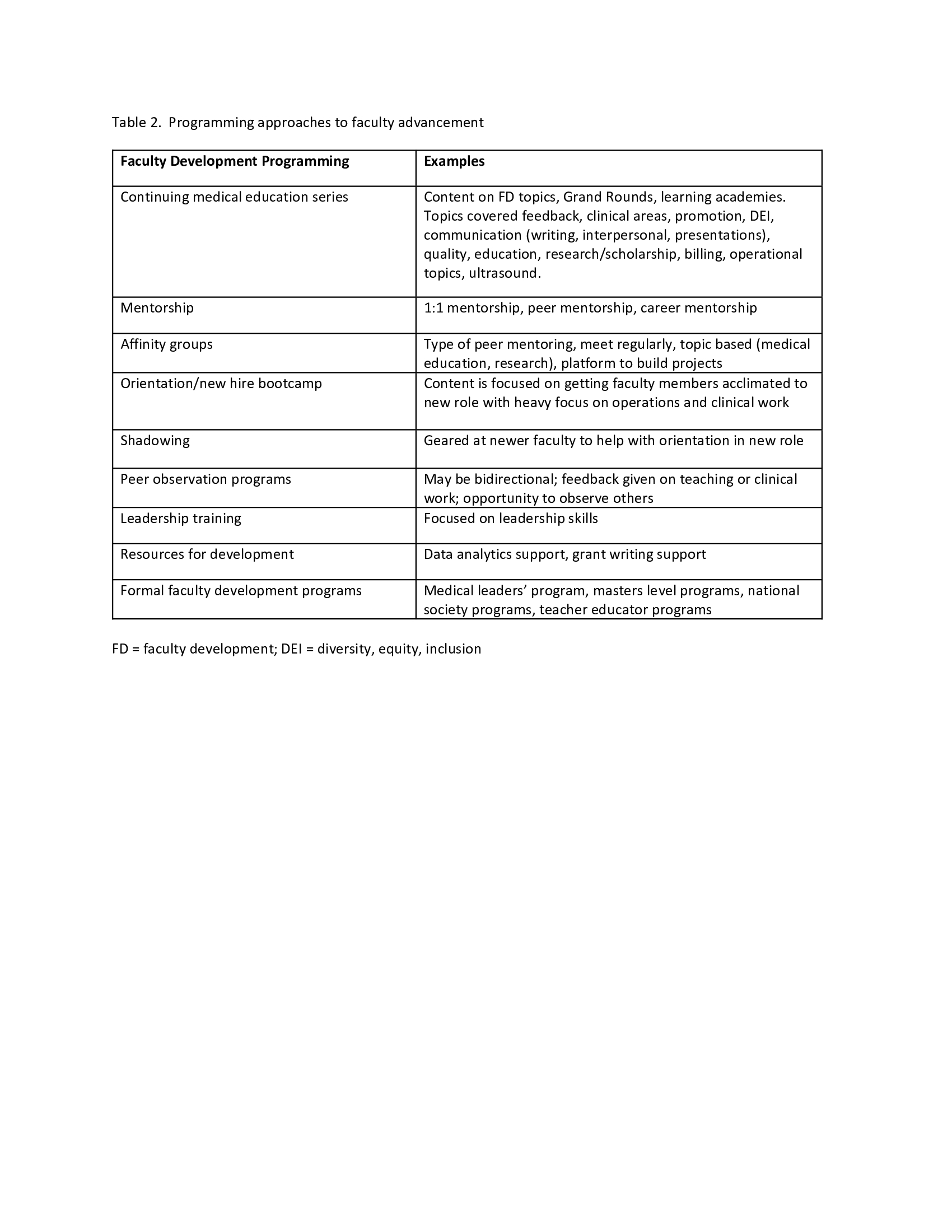Background: Hospital medicine (HM) continues to be primarily composed of junior faculty and research has highlighted a paucity of mentors and academic output. Faculty advancement programs have been identified as a means to support junior faculty in their career trajectories and to advance the field. The optimal approach to supporting faculty development (FD) efforts is not known.
Methods: Hospitalists in the Hospital Medicine Reengineering Network (HOMERuN) participated in 7 virtual focus groups in order to understand hospitalist groups’ approaches to FD, including efforts that were perceived to be effective, identify barriers, and identify potential future directions for FD programs. Rapid qualitative methods were utilized including templated summaries and matrix analysis to identify major themes.
Results: Nineteen individuals from 17 unique institutions from across the US in May 2022 participated in the focus groups. Four key themes emerged from the study and included (1) academic hospitalist programs face multifaceted challenges and barriers to FD in HM, (2) to manage the challenges groups have embraced a diversity of structures and frameworks, (3) there is a direct impact of clinical volumes on faculty advancement needs, and (4) future areas of opportunity to include defining tangible outcomes of FD programs and creating a repository of FD material which can be shared widely.
Conclusions: HM groups face many struggles, in particular competing organizational and clinical demands but are working to overcome these through innovative FD structure and frameworks. Addressing identified challenges through collaboration, compensation, and developing essential infrastructure is essential to sustain impactful FD.


